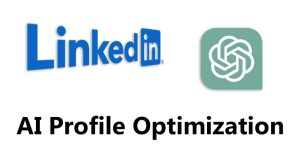We’re delighted to guide you through the transformative world of AI Data Analytics. At its core, this discipline fuses the power of Artificial Intelligence (AI) with traditional data analytics to bring you unmatched insights and perspectives.
AI Data Analytics: Unlock Actionable Insights Faster Than Ever
In a world overflowing with data, uncovering meaningful insights can be overwhelming and time-consuming. AI Data Analytics tools bring advanced machine learning and AI techniques to traditional data analysis, helping users make sense of vast datasets with unprecedented speed and accuracy. From customer insights and trend analysis to sentiment detection and market forecasting, AI-powered tools provide deeper, faster, and more precise insights than ever before. Explore our curated list of AI Data Analytics tools to transform your data into actionable intelligence, streamline decision-making, and stay ahead of the curve.
Best AI Data Analysis Tools
Featured
Diving Deep: What Are Data Analytics?
Data analytics involves the examination, cleaning, transformation, and modeling of data to uncover meaningful information, suggest conclusions, and support decision-making. In this digital age, data analytics is employed in various sectors, from business to health, environment to finance. Some notable applications include:
- Business Operations: Optimizing processes, predicting market trends, and improving customer experiences.
- Healthcare: Predicting disease outbreaks, enhancing patient care, and driving medical research.
- Finance: Fraud detection, investment strategies, and risk assessment.
The benefits are myriad: enhanced decision-making, efficient operations, reduced costs, and predicting future trends, to name a few.
AI Data Analytics doesn’t just offer theoretical advantages; it’s actively reshaping numerous industries. Let’s delve into ten detailed scenarios showcasing its transformative power:
Ad Agency Campaign Optimization: An advertising agency wants to improve the ROI of its online campaigns. By implementing AI data analytics, it analyzes user behavior and engagement metrics in real-time. This allows the agency to auto-adjust ad placements and content, leading to higher click-through rates and conversions.
Retail Inventory Management: A retail chain is grappling with overstock issues. AI data analytics assists in predicting sales trends based on historical data, seasonality, and market fluctuations. Consequently, inventory is optimized, reducing wastage and storage costs.
Healthcare Predictive Analysis: A hospital aims to reduce patient readmissions. With AI, it analyzes patient records, treatment plans, and post-discharge feedback. This aids in identifying high-risk patients and tailoring post-care procedures, reducing readmission rates.
Finance Fraud Detection: A banking institution is concerned about rising fraud cases. Implementing AI analytics, it continuously monitors transaction patterns, flagging anomalies and potentially fraudulent activities in real-time, ensuring customer funds remain protected.
Energy Consumption Analysis: An urban city is striving for sustainability. With AI data tools, the city analyzes power consumption patterns, identifies peak load times, and gives residents actionable insights to adjust their energy usage, leading to a greener urban environment.
E-commerce Personalization: An online store aims to boost its sales. Using AI, it examines customer browsing habits, purchase history, and feedback. This enables tailored product recommendations, resulting in increased sales and enhanced user experience.
Agriculture Crop Yield Prediction: A farm wants to maximize its crop yield. By leveraging AI, it analyzes weather patterns, soil quality, and crop health. This leads to predictive insights on optimal planting times and practices, maximizing harvests.
Transport Logistics: A delivery service wants to minimize delays. Using AI analytics, it predicts traffic patterns, analyzes weather forecasts, and considers package volumes. Routes are optimized in real-time, ensuring timely deliveries and reduced fuel costs.
Entertainment Content Suggestion: A streaming platform aims to increase user engagement. Implementing AI, it gauges user watch history, ratings, and preferences. This results in personalized content suggestions, keeping users engaged and subscribed.
Real Estate Market Forecasting: A real estate firm is looking to invest in emerging markets. AI tools analyze housing trends, local economic factors, and future urban planning projects. The firm can then make informed investment decisions, ensuring high returns.
The AI Advantage: AI-Powered Data Analytics Tools
While traditional data analytics is powerful, AI takes it a notch higher. AI-powered data analytics tools employ algorithms and statistical methods to discern patterns and insights from data without explicit instructions. Such tools:
- Adapt & Learn: Unlike static traditional models, AI tools learn and improve over time.
- Handle Vast Datasets: Sift through enormous amounts of data at lightning speed.
- Precision: Offer unparalleled accuracy in their analysis.
With AI-driven tools, you’re not just analyzing data; you’re foreseeing the future, understanding complex patterns, and making informed decisions faster than ever before.
FAQ
What are AI Data Analytics Tools?
How do AI Data Analytics Tools work?
🔷 Automate data processing and cleaning.
🔷 Identify trends, correlations, and anomalies in datasets.
🔷 Provide predictive analytics and forecasting.
🔷 Generate visualizations and reports for easy interpretation.
What are the benefits of using AI Data Analytics Tools?
2. Improved Accuracy: Reduce human error with AI-powered analysis.
3. Predictive Capabilities: Forecast trends and outcomes using historical data.
4. Automation: Save time by automating repetitive tasks like data cleaning and reporting.
What types of data can these AI Tools analyze?
🔷 Customer Data: Purchase history, behavior, and preferences.
🔷 Market Data: Trends, competitor analysis, and sales performance.
🔷 Social Media Data: Sentiment analysis, engagement metrics, and audience insights.
🔷 Operational Data: Supply chain efficiency, inventory levels, and workflow optimization.
Can AI Data Analytics Tools handle real-time data?
Are these tools suitable for small businesses?
Do I need technical skills to use AI Tools for data analysis?
What industries benefit from AI Data Analytics Tools?
🔷Retail: Optimizing inventory and understanding customer behavior.
🔷Finance: Detecting fraud and predicting market trends.
🔷Healthcare: Analyzing patient data and improving treatment outcomes.
🔷Marketing: Measuring campaign performance and audience sentiment.







